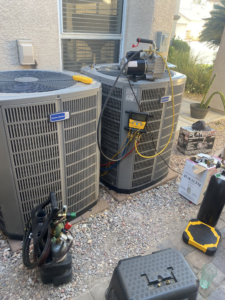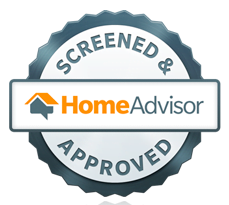What You Should Do Before Contacting an HVAC Provider
When it comes to your home’s heating, ventilation, and air conditioning (HVAC) system, it’s important to take the necessary steps to ensure that it is running smoothly and efficiently. Before contacting an HVAC provider, there are a few things you should do to prepare. By doing so, you can save time and money, and ensure that you get the best service possible.

- Do your utility bills seem too high?
- Are any of your current HVAC system units too noisy?
- Do you have a problem with humidity in the summer or dry air in the winter?
- Are there rooms that are always too hot or too cold?
- Do you have pets?
- Do any family members suffer from allergies?
- Do cooking odors linger?
- Is your current system still covered by a warranty?
- Do you want more control over managing energy costs?
- Do you want a unit that is backyard-safe?
- Do you want a system that’s easy to maintain? Maybe a filter that’s easy to replace?
- Is your current outdoor unit unattractive?
- Is your current furnace’s short cycle constantly turning on and off?
1. Assess Your HVAC System
The first step before contacting an HVAC provider is to assess your current system. Take note of any issues or concerns you may have, such as strange noises, uneven heating or cooling, or high energy bills. This will help you communicate your needs and concerns effectively to the HVAC provider, allowing them to better understand the problem and provide appropriate solutions.
Additionally, check if your system is still under warranty. This information will be useful when discussing repairs or replacements with the HVAC provider.
2. Research HVAC Providers
Before reaching out to an HVAC provider, it’s important to do some research to find reputable and reliable companies in your area. Look for providers with positive customer reviews, certifications, and licenses. You can also ask for recommendations from friends, family, or neighbors who have recently had HVAC work done.
Visit the websites of the HVAC providers you are considering and look for information about their services, experience, and customer testimonials. This will give you a better idea of their expertise and the quality of their work.
3. Prepare a List of Questions
Before contacting an HVAC provider, it’s a good idea to prepare a list of questions to ask during your initial conversation. This will help you gather the necessary information and make an informed decision. Some questions you may want to include are:
- Are you licensed and insured?
- What types of services do you offer?
- Do you have experience working with my specific HVAC system?
- Can you provide references from past customers?
- What is your pricing structure?
- Do you offer any warranties or guarantees on your work?
- What is your availability for repairs or maintenance?
By asking these questions, you can gain a better understanding of the HVAC provider’s qualifications, pricing, and availability, helping you make an informed decision.
4. Gather Relevant Information
When contacting an HVAC provider, it’s important to have all the relevant information readily available. This includes details about your HVAC system, such as the make, model, and age. If you have any documentation or records of past maintenance or repairs, gather those as well.
Having this information on hand will allow the HVAC provider to assess your system more accurately and provide appropriate recommendations or solutions.
5. Schedule a Consultation
Once you have done your research, prepared your questions, and gathered the necessary information, it’s time to schedule a consultation with an HVAC provider. During this consultation, the provider will assess your system, address any concerns or issues you have, and provide recommendations for repairs, maintenance, or replacements.
Be sure to take notes during the consultation and ask for a written estimate of the proposed work. This will help you compare quotes from different providers and make an informed decision.
Conclusion
Before contacting an HVAC provider, it’s important to assess your current system, research reputable providers, prepare a list of questions, gather relevant information, and schedule a consultation. By taking these steps, you can ensure that you are well-prepared and make the most of your interaction with the HVAC provider. Remember, a little preparation goes a long way in getting the best service for your HVAC needs.









